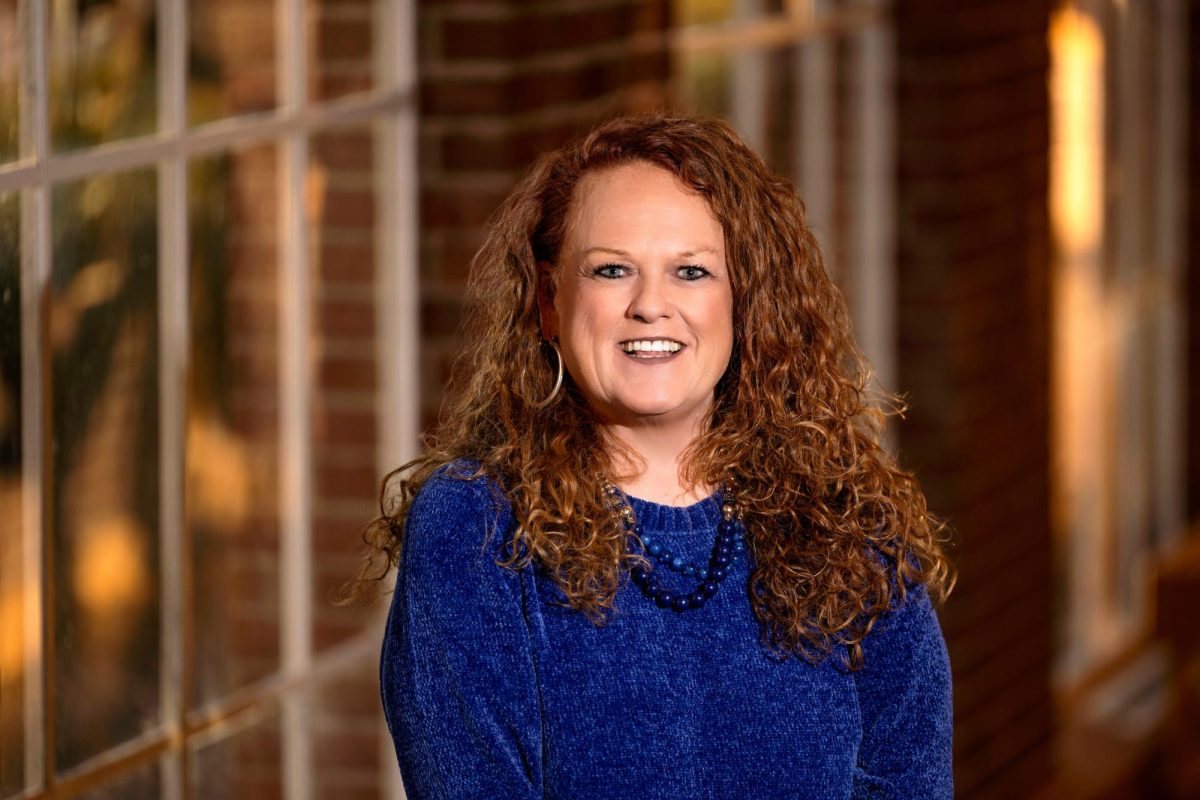Bucknell’s annual notification of the University’s updated Equal Opportunity, Harassment and Nondiscrimination policy was sent out in a campus-wide email this past Tuesday, Oct. 1. To provide more background information for students, faculty and staff, as well as clarify some of the newer resources being made available, “The Bucknellian” sat down with Employee Experience Director and Culture and Title IX Coordinator Samantha Hart and asked her a few questions about this academic year’s policy.
What is the Equal Opportunity, Harassment and Nondiscrimination policy? What has changed between prior years and the new 2024-25 one?
The Equal Opportunity, Harassment and Nondiscrimination policy is an overarching civil rights-based policy that governs the University’s response to all forms of discrimination and harassment, including sexual misconduct and relationship violence. It applies to faculty, staff and students alike and allows us to ensure a streamlined and consistent approach to each and every reported concern. Previously, we had multiple policies that addressed issues related to Title VI; VII; IX and Section 504. Implementing one policy that addresses all of these equal opportunity, harassment and nondiscrimination claims will provide for consistent protections and resolutions across the board. It also allows us to provide one clear reporting path for campus community members so they do not have the burden of trying to determine which reporting form to complete. Both the new policy and the reporting form can be found at bucknell.edu/titleix.
The 2024 Title IX regulations were released in April of 2024 and education institutions were required to implement them through policies and procedures by Aug. 1, 2024. Many states filed lawsuits attempting to enjoin the regulations in order to prevent them from being implemented. Pennsylvania was not a state that filed a lawsuit and we spent the majority of the summer preparing a new policy as such. We also took the opportunity to review and update existing policies and create the overarching civil rights framework which was a goal we already had in place.
However, on Jul. 2, 2024, there was a legal injunction issued through the State of Kansas, et al. v. U.S. Dept. of Education, et al. (USDC, D. KS, 07/02/24) that affects Bucknell specifically. The lawsuit filed in Kansas to prevent the regulations from being implemented pending further legal proceedings applies to KS, AK, UT and WY, as well as schools attended by the members of Young America’s Foundation or Female Athletes United and schools attended by the children of members of Moms for Liberty. A full list of schools was released through the court that indicates which institutions have members in one of the three nationwide organizations. Bucknell was on the list because we have a student or a student’s parent who is a member of one of those organizations. We are therefore currently prevented from implementing the 2024 regulations through our policy, which means for us, the 2020 regulations are still in effect.
Accordingly, we decided to continue moving forward with the overarching Equal Opportunity, Harassment and Nondiscrimination policy with the Title IX portions being compliant with the 2020 regulations. We do still have a secondary policy prepared that has procedures in alignment with the 2024 regulations ready to go into effect, should […] the injunction [be] lifted.
In terms of the 2020 vs. 2024 regulations, we were still able to make a lot of updates to our practices to ensure we are utilizing best practices in alignment with our individual-specific values. For instance, we continue to provide a variety of supportive measures for our campus community and have built out a more robust alternative conflict resolution response mechanism.
One of the things that a lot of schools were able to do as a result of the 2024 regulations was to move from a hearing process to a single-investigation and decision-maker method for determining whether your Title IX policy was violated. However, because we have state law through the third circuit that requires Pennsylvania schools to host “live hearings” on matters of sexual misconduct, we did not intend to deviate from that practice anyway. Regardless, we look at the compliance aspects of either set of regulations, as the “floor” and my office’s philosophy is to go above and beyond that so that we can ensure we are supporting our campus community beyond what is required.
Tell us about the process of getting more confidential resources available on campus. Why do you feel that confidentiality is valuable? What are you hoping to see now that confidential resources are more readily available?
I am excited about the expansion of confidential resources for faculty, staff and students. In addition to confidential spaces designated through the scope of licensure, professional ethics and/or professional credentials such as counseling, the Health Center and Religious and Spiritual Life, we were able to expand confidential resources by designating specific faculty and staff by their role. In addition to the Interpersonal Violence, Prevention and Advocacy Office, we now designate two faculty (Professor Bill Flack, Psychology and Professor Erica Delsandro, Women’s & Gender Studies) and three staff members in Equity and Inclusive Excellence (Bill McCoy, director, Gender and Sexuality Resources; Jennifer Figueroa, director, International Student Scholar Services; and Marcus Scales, director, Multicultural Student Services) as resources for faculty, staff and students to share concerns with and get guidance on options for addressing those concerns. This provides more options for individuals who are experiencing a potentially hostile environment in their learning, living or working space and they can seek this guidance from someone they already may have a connection with or resonate closer to based on the confidential resources’ roles at the institution. The confidential resources can discuss options without formally reporting it to my office.
What is something you’ve been able to implement that you are most proud to see?
One of the things I am most proud of is that we were able to build out our restorative practices and conflict resolution framework for reports of all discrimination and harassment. We have been working with other offices such as Equity and Inclusive Excellence to get faculty and staff trained on mediation and facilitated dialogue processes to create a community where everyone feels like they can come to the table and express their values, thoughts and opinions. My office has seen value in alternative resolution mechanisms, particularly related to reports of discrimination and harassment and we are excited to continue building out our resources in that regard.
Is there anything else about these processes that students should be aware of?
I want students to be aware of the expansion in resources for me as the Title IX coordinator. We recently integrated Title IX into the Talent, Culture and Human Resources Division to provide greater support for both students and the employee experience. We were able to add two Deputy Title IX coordinators (Megan Houser and Julia Leighow) and create the Employee Experience, Culture and Title IX team to oversee concerns being reported through the Equal Opportunity, Harassment and Nondiscrimination policy. As a newly formed team, we have many ideas and will spend the next several years building out our framework around civil rights response— as well as continuing to work with other constituents across campus to ensure we are creating a culture where all faculty, staff and students are treating each other with dignity and respect at the center of our interactions.
A more complete list of available resources, as well as any additional information about the policy and reporting processes, can be found at bucknell.edu/titleix.























